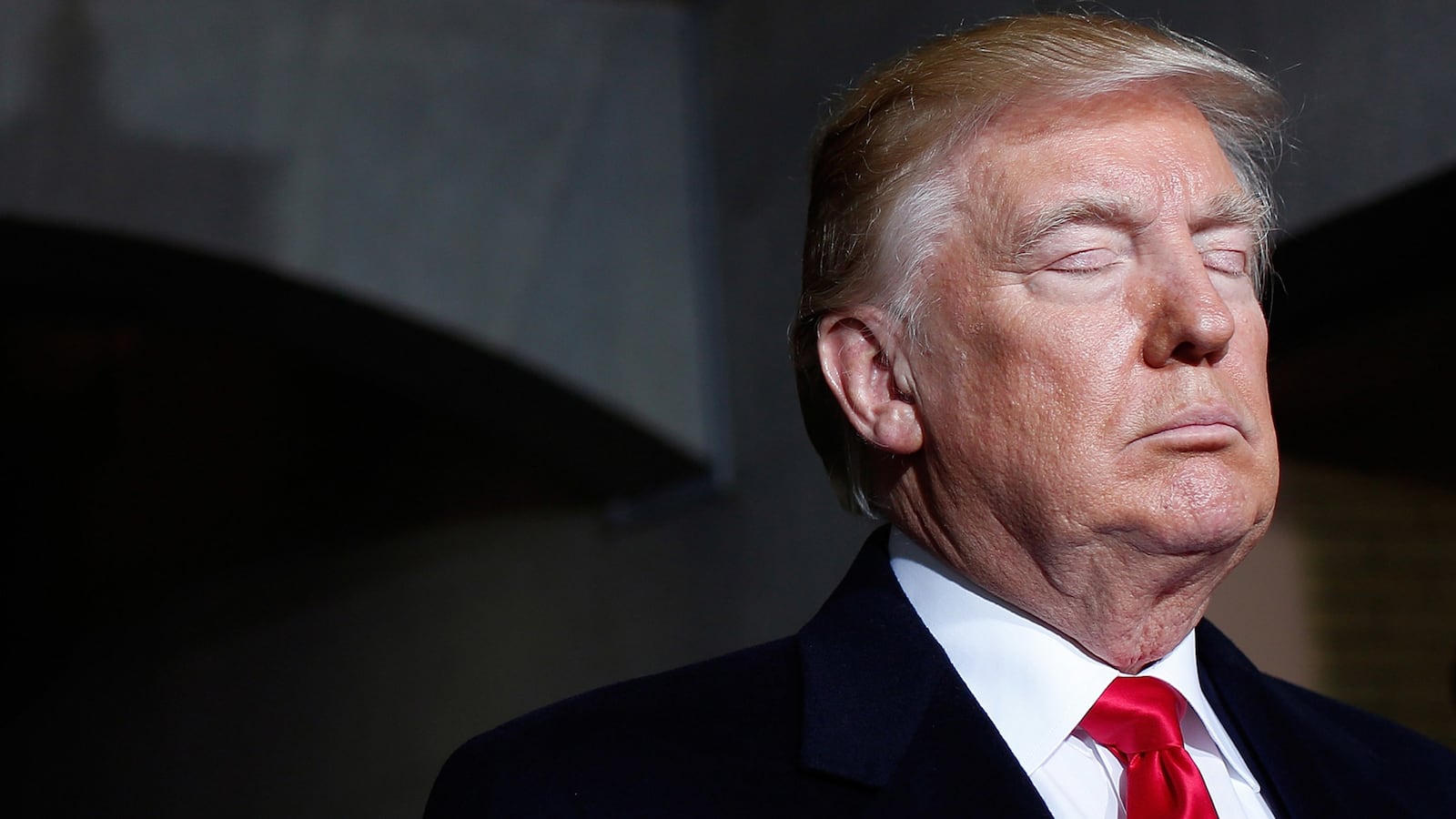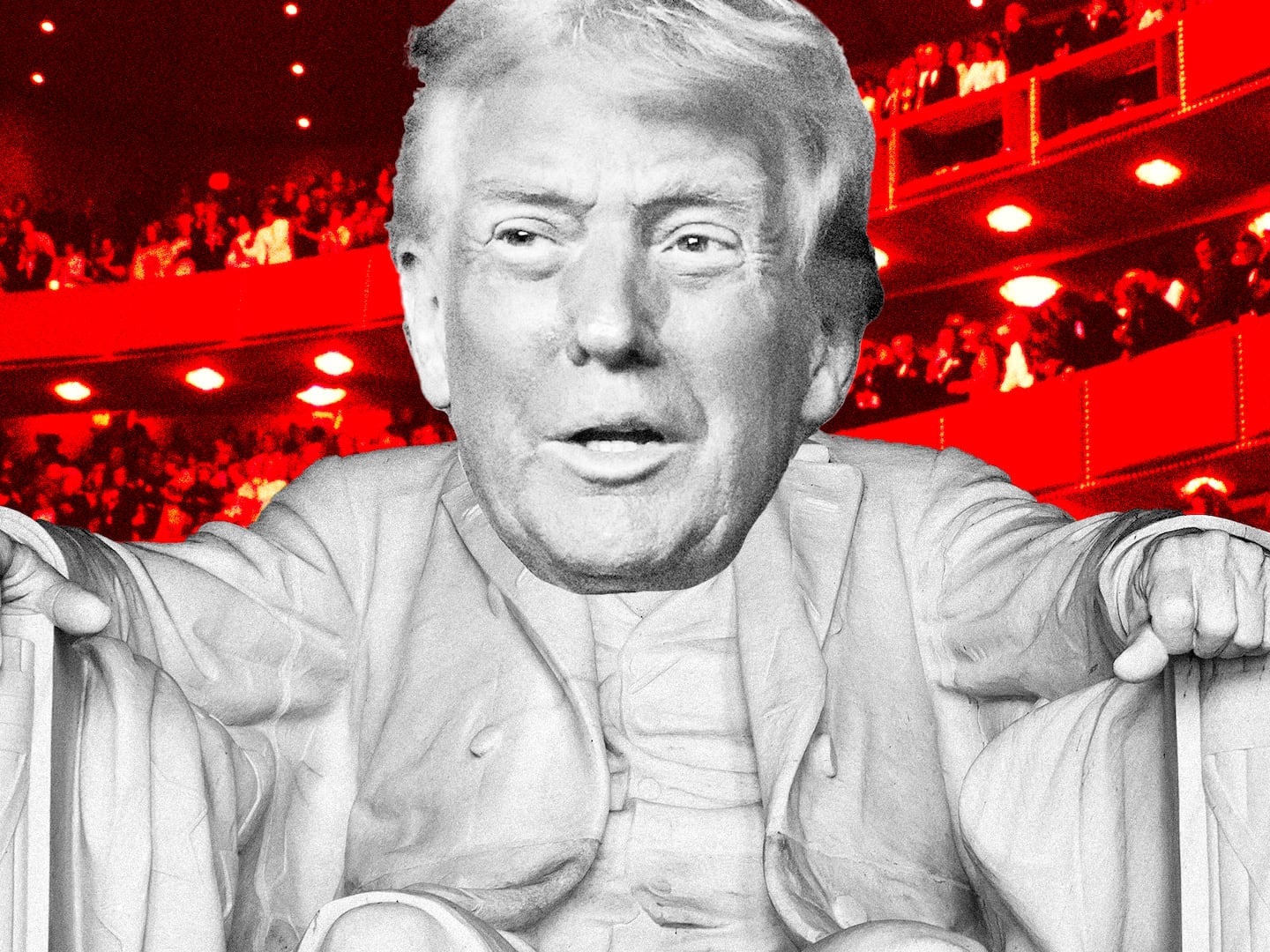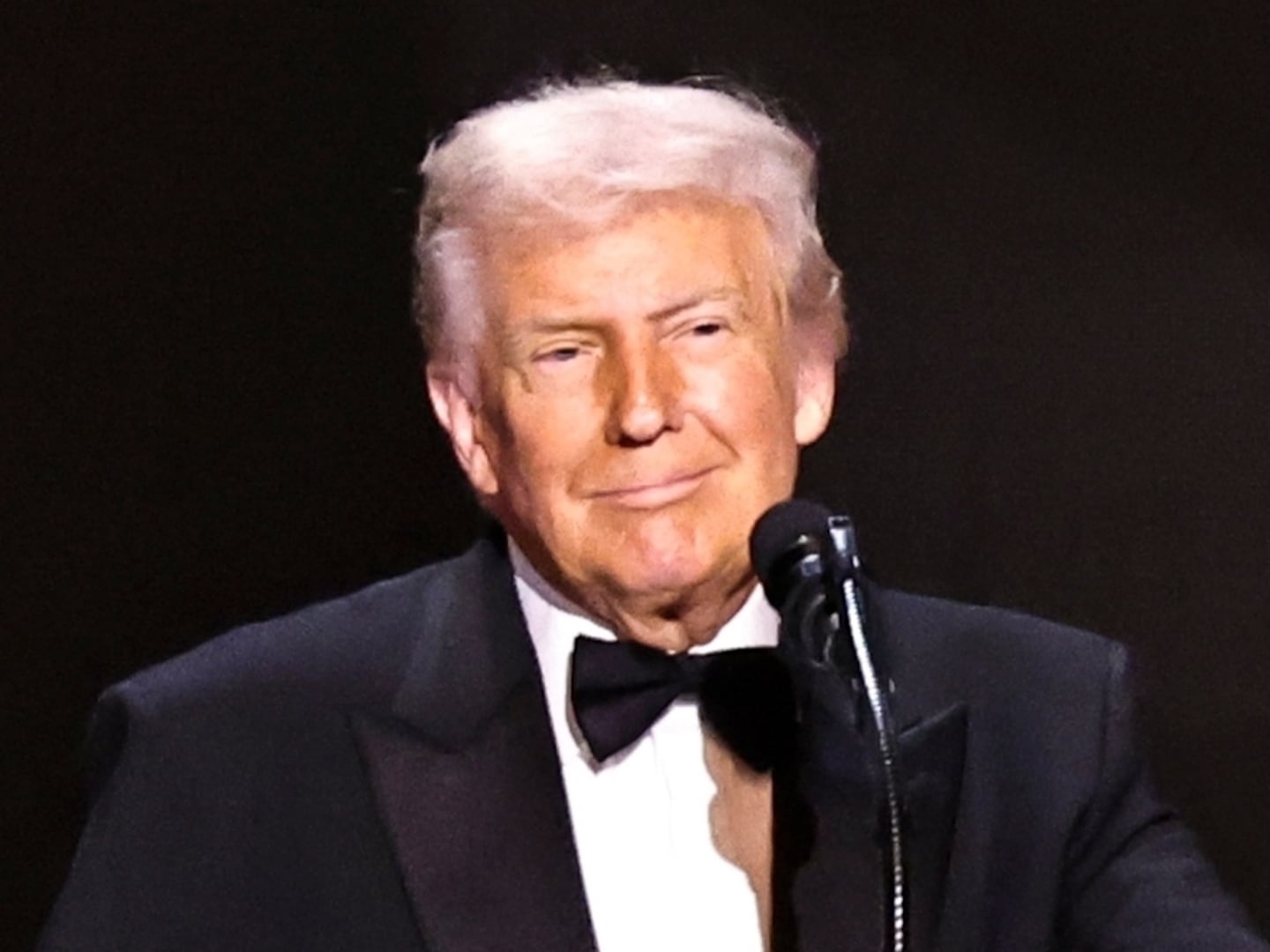Public opinion can take off like a runaway train once it gets going. President Donald Trump, already polling lower than any of his predecessors in his first year, might soon be hearing the hoofbeats of history.
At 32 percent in the most recent Pew and Monmouth polls, he is perilously close to what most historians and political scientists say is a tipping point of 30 percent, below which a president can no longer effectively lead.
President Nixon was at 22 percent when he resigned in August of 1974 and Republican Party affiliation had dropped to 18 percent, recalls Reagan historian Craig Shirley.
“Going below 30 percent kept Truman from seeking another term and going below 30 percent eventually drove Nixon out of office,” he says. “In the modern era, beginning with FDR, presidents get into trouble when they fall below 30.”
Nixon won a landslide re-election in 1972 with 61 percent of the vote, but it was all downhill after that. For most of the next year, his polls lingered in the mid to high 30s, a downward trajectory that began even before the White House taping system was revealed in July of 1973, exposing his legal jeopardy.
Prior to that, Watergate had taken a steep toll on his numbers, along with campus discord over the Vietnam War and an oil embargo that led to long gas lines—all of which led to “a general sense of America in decline,” says Shirley.
Trump, much earlier in a presidency predicated on his promise to “make America great again,” is facing his own challenges. The GOP’s loss of a Senate seat in ruby red Alabama thanks to the sexual misconduct allegations against Republican Roy Moore has to make President Trump uneasy about the power of today’s newly awakened movement. Over a hundred members of Congress are calling for an investigation into claims of sexual harassment brought by multiple women against Trump before he was president. While the lawmakers are all Democrats for now, public opinion doesn’t always abide by party lines.
The Monmouth University poll released Wednesday found Trump’s biggest drop in approval was among Independent women. Just 24 percent of women overall approve of Trump’s job performance.
“Public opinion is everything,” says Shirley, pointing to how the anti-war movement finally forced the hand of government when the Democratic-controlled House cut off funds for the Vietnam War. The Environmental Protection Agency came about because of public-health concerns about our air and water. People were wearing surgical masks in California then like they do in China today.
“The public demanded it,” says EPA’s first director, William Ruckelshaus. Nixon wasn’t an environmentalist. He told his domestic policy adviser, John Ehrlichman: “Just keep me out of trouble on the environment. Do what you have to do.” In private, he mocked tree-huggers. “He did it for political reasons,” Ruckelshaus told The Daily Beast.
“That’s the way the system is supposed to work. He’d never run on the environment, and he didn’t know much about it. He realized he had to do something because the public demanded it.”
No president has been as unpopular so early in his first term, but what we don’t know is if Trump can go a whole lot lower, says Jack Pitney, a professor of American politics at Claremont McKenna College. “He boasts about his base being so loyal he can shoot someone on Fifth Avenue and not lose any support. A certain hard core is never going to leave him.”
How big that base is, whether it’s 20, 25, or 30 percent, we could soon find out if his numbers keep dropping. “Nixon’s supporters abandoned him because they believed in reality,” says Pitney, recalling how California Rep. Charles Wiggins, the ultimate Nixon loyalist who led Nixon’s defense in the Watergate hearings, withdrew his support after being summoned to the White House and hearing the “smoking gun” tape. “The difference today is the hard core can cocoon itself in their own reality,” says Pitney.
Republican pollster John McLaughlin says Trump isn’t as bad off as the polls suggest. He says the ones getting headlines deliberately under-sample Republicans and don’t screen for likely voters. He does agree that Trump spent a lot of political capital in Alabama, and got nothing. A Republican should be ahead by 20 points in Alabama, he says. If you’re behind in Alabama—where Trump’s approval rating is now below 50 percent—you’re behind everywhere.
Trump is having trouble because he’s his own enemy. “He’s looking for an opponent,” McLaughlin told The Daily Beast, “whether it’s [Sen. Kirsten] Gillibrand or Hillary [Clinton]. He’s looking for an antagonist to his protagonist. He’s running against himself, and they don’t have the political operation to wage a campaign.”
McLaughlin has a history with Trump. When Trump was looking at running for president an election earlier, McLaughlin drew up a plan for him, but it wasn’t the right time, and it wasn’t the right race. Last year, after Trump lost the Wisconsin primary, he brought in McLaughlin, who counseled him to double down on Hillary Clinton’s corruption because “a crook always beats a fool,” and Clinton was trying to turn him into a fool, which he said is why she was going after his temperament.
The advice was distilled from his time working with legendary pollster and master of negative campaigning, Arthur Finkelstein, who died earlier this year. In the Nixon-McGovern race of 1972, Finkelstein told McLaughlin, “We made McGovern the fool,” tagging him as the candidate of “amnesty, abortion and acid.”
Trump heeded the advice to wake up every day and go after Clinton, and sometime in October they found enough voters who were ready to vote against Clinton’s corruption instead of against Trump’s temperament.
Today, the line of demarcation is on Capitol Hill. A legislative victory on taxes will buy Trump time, but politicians are fair-weather friends. Political capital is about popularity, and Trump has a negative balance.






